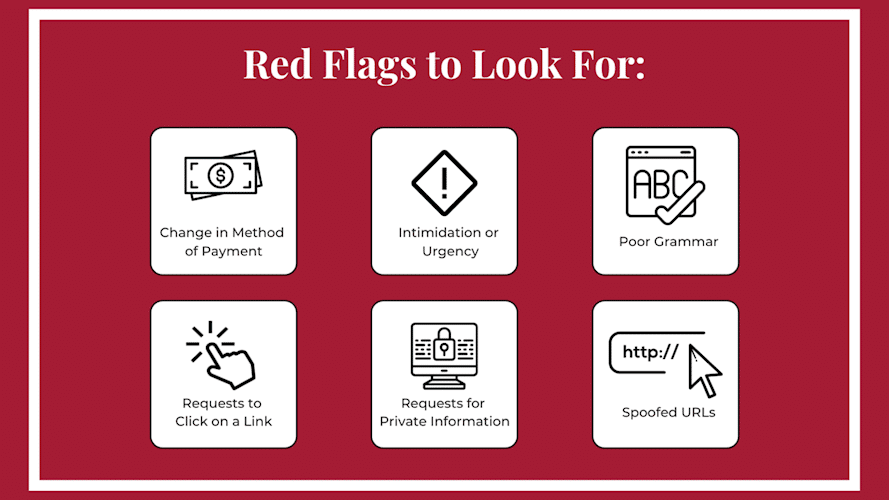The Importance of Regular Website Updates
In the competitive and fast-paced digital world of today, it is essential for any company to have a website that is kept up to date. Not only do regular updates involve the addition of new content, but they also guarantee that your website will continue to be functioning properly, safe, and in line with the most recent developments in the business. It is possible to cause performance problems, security risks, and poor user experiences by ignoring updates, all of which can have a negative impact on your brand and your bottom line for your business. This article will discuss the reasons why it is important to update your website on a regular basis, as well as the benefits that doing so can bring to your company.
1. Ensuring Website Security
Any company that operates online ought to make the protection of their website a top concern. Without regular updates, your website may be vulnerable to vulnerabilities that hackers might exploit. Cyber threats are always growing, and if you do not update it regularly, your website may be.
1.1 Preventing Cyber Attacks
In order to get access to websites, hackers frequently focus on exploiting outdated software and plugins. Updates to your website’s content management system (CMS), themes, and plugins should be performed on a regular basis in order to reduce the likelihood of security breaches occurring. Security patches are often included in these updates. These patches correct vulnerabilities that were discovered by developers, so ensuring that your website is protected from malicious attacks.

1.2 Safeguarding User Data
In the event that your website contains sensitive information, such as personal details or payment information, it is of the utmost importance to safeguard this information. It is important to ensure that your website is in compliance with the most recent data protection standards, such as the General Data Protection Regulation (GDPR), by performing regular upgrades. It is possible to increase client loyalty by fostering trust among users through the use of a secure website.
2. Improving User Experience
When it comes to maintaining visitors’ interest in your website, user experience (UX) is an extremely important factor. It is possible for users to leave a website that is slow, unresponsive, or difficult to browse, which can have a negative impact on your conversion rates and will also damage your reputation.
2.1 Enhancing Website Performance
It is possible for older website code to become obsolete as technology improves, which might result in slower load times and performance difficulties. Keeping your website up to date with regular changes will guarantee that it is optimized for performance and functionality. Because speed is such an important component in Google’s algorithm, a website that loads quickly not only helps to ensure that users are happy with their experience, but it also helps to improve search engine ranks.
2.2 Keeping Design and Functionality Fresh
Because of the ever-changing nature of web design trends, a website that appears to be out of current can have a detrimental effect on the image of your brand. By implementing regular updates, you will be able to add contemporary design elements and enhance functionality, such as making the navigation more user-friendly and responsive on mobile devices. As more people browse the internet using mobile devices like smartphones and tablets, it is crucial to make sure that your website is accessible across all devices.
3. Staying SEO Competitive
When it comes to attracting visitors to your website, search engine optimization (SEO) is absolutely necessary. Websites that are routinely updated with new information and that adhere to the most recent best practices for search engine optimization (SEO) are given priority by search engines such as Google.
3.1 Fresh Content for SEO
Providing search engines with evidence that your website is active by regularly updating it with fresh blog posts, articles, or product pages is a good way to communicate this information. This has the potential to result in superior search rankings as well as higher visibility. You will also have the option to target new keywords, address issues that are currently hot, and engage with your audience in a timely manner when you publish a new piece of content.
3.2 Optimizing for Algorithm Changes
Because search engine algorithms are always being updated, strategies that were successful for search engine optimization (SEO) a year ago might no longer be viable. Continuous updates enable you to remain ahead of algorithm changes by refining your content, meta tags, and site structure in accordance with the most recent rules for search engine optimization (SEO). Therefore, this guarantees that your website will continue to be competitive in the search engine results pages (SERPs).
4. Keeping Up with Technology
Because technological advancements are constantly occurring, websites have to be able to stay up with these developments. It is necessary to stay up to date with technology in order to maintain a website that is functional. This includes staying current with new browsers and updated programming languages.
4.1 Browser Compatibility
New browser versions are introduced on a regular basis, and older website code could not run properly on browsers that are significantly more recent. Through consistent updates, you can guarantee that your website will continue to be compatible with all of the major browsers. This will ensure that your visitors will have a seamless experience regardless of the platform they use to access your website.
4.2 Mobile Optimization
It is more crucial than ever before to make sure that your website is fully optimized for mobile users, as the demand for mobile surfing is expected to continue to increase. The implementation of responsive design features and the guarantee that your website will adjust fluidly to a variety of screen sizes are both made possible by having regular upgrades. In addition, Google gives preference to websites that are mobile-friendly, which might help your search engine optimization ranks.
5. Complying with Legal and Industry Standards
As a result of the ever-evolving nature of the regulatory environment that governs the internet, failure to comply with the most recent standards can result in significant financial penalties as well as damage to your reputation.
5.1 Accessibility Compliance
Accessibility on the online is becoming an increasingly important issue, and some nations have passed legislation that mandate websites to be accessible to those who have disabilities. Keeping your website up to date with regular changes ensures that it complies with accessibility standards, such as the Web Content Accessibility Guidelines (WCAG), which are designed to make your website accessible to a wider audience.
5.2 GDPR and Data Protection
Your website must comply with the laws of the General Data Protection Regulation (GDPR) if you have customers in Europe or if you operate in Europe. The implementation of regular updates helps to guarantee that your website continues to comply with these data protection rules, so preventing legal penalties and safeguarding the privacy of users.
6. Boosting Conversion Rates
Making consistent improvements to your website can also have a direct influence on the conversion rates you achieve. Having a website that is well-maintained helps to cultivate trust, enhances the user experience, and makes it simpler for visitors to carry out the actions that they want to.
6.1 Improving Call-to-Action (CTA) Effectiveness
Increasing the effectiveness of your calls-to-action (CTAs) can be accomplished by examining and tweaking them throughout the course of regular updates. Enhancing user engagement and increasing conversion rates can be accomplished through the testing of new designs, phrasing, or positioning decisions.
6.2 Streamlining the Checkout Process

When it comes to e-commerce websites, modernizing the checkout process can make a major impact in lowering the percentage of customers who abandon their shopping carts. There are a number of modifications that can contribute to higher conversion rates. Some of these updates include simplifying the steps that are required to complete a transaction, offering new payment choices, or increasing the functionality of the form.
Conclusion
Regular Website Updates Are Essential for Success
When you update your website on a regular basis, you are not just ensuring that your material is up to date; you are also ensuring that your website is secure, improving the user experience, remaining competitive in search engine results, and following with legal guidelines. You can ensure that your website continues to run at its highest level, increase the number of visits it receives, and turn those visitors into devoted clients by upgrading it on a regular basis.
When website updates are ignored, on the other hand, it can result in security issues, poor user experiences, and missed possibilities for profit. If you make updating your website a top priority, you will experience long-term benefits that will contribute to the expansion and success of your thriving firm.






